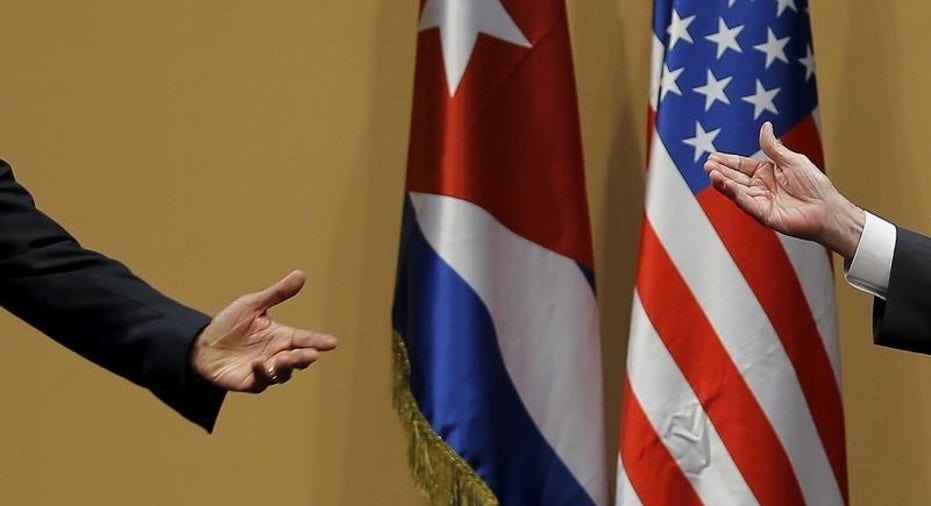Patience an asset for U.S. businesses seeking opportunities in Cuba

HAVANA – Red tape and slow approvals from Washington and Havana make it hard for U.S. companies to do business in Cuba despite a detente between the U.S. and Cuban governments, according to American executives in Havana for an annual trade fair this week.
Many vowed to keep trying, though, as reconciliation between the former Cold War foes slowly opens the door to a new market.
In the build-up to the fair, representatives from 25 U.S. companies spoke about opportunities on the Communist-ruled island as they gathered at the former U.S. Businessmen���s Club in Old Havana. It was a symbolic location, in a building taken over by Fidel Castro's revolutionary government after the overthrow of a U.S.-backed dictatorship in 1959.
A U.S. hotel, cruise ships and commercial flights have appeared in Cuba for the first time in more than 50 years, since U.S. President Barack Obama and his Cuban counterpart, Raul Castro, announced in 2014 that they would work toward normalizing relations.
But while Obama has loosened the U.S. trade embargo on Cuba, the Republican-controlled U.S. Congress has not heeded his calls to end it. Together with Cuba���s bureaucracy and ongoing allergy to capitalism, that means serious opportunities on the large island close to Florida remain a struggle for most U.S. companies.
"We are seeking a blanket license from the U.S. Treasury Department for all our products. We have been waiting a while already, something like 10 months," said Hector Rodriguez, sales manager at Puerto Rico company Rimco, the official dealer for Caterpillar's Cuba business and one of the trade fair's exhibitors.
Progress has been made in areas such as civil aviation and telecommunications, but not others such as infrastructure, energy and health, said Myron Brilliant, executive vice president of the U.S. Chamber of Commerce, which represents many at the fair and hosted the meeting at the old downtown business club.
"There has been significant, historic progress on the political front while on the commercial, only incremental progress," said Brilliant, whose group represents corporations eying or already in Cuba, including American Airlines , Dow Chemical Co , Fifth Street Asset Management First Data Corp and General Electric Co .
"Cuba has not been a country that has encouraged foreign investment, profitability, entrepreneurship and innovation, and these remain sensitive cultural issues," Brilliant said, voicing frustration that more deals had not been signed and admiration that so many of his members took a long view and remained interested in Cuba.
Hundreds of U.S. companies and their legal counsels have met Cuban officials over the last year to discuss trade and investment, often accompanying local, state and national politicians.Some companies have lost interest, but many remain in contact with Cuban officials.
"You are trying to undo 55 years of enmity and that requires patience," said Pedro Freyre, chair of international practice at Akerman LLP, and who travels frequently to Havana, adding that some clients became frustrated, but most understood.
"That you can use your cell phone in Cuba, that you can catch a flight out of New York or Ft. Lauderdale, that Cuban programmers are doing work for U.S. companies, that a cruise ship regularly docks here, that is remarkable,��� he said.
(Reporting by Marc Frank, additional reporting by Sarah Marsh; Editing by Frank Jack Daniel and Tom Brown)



















